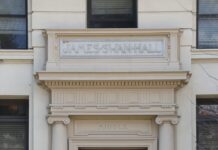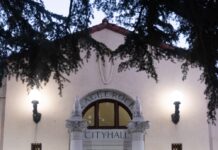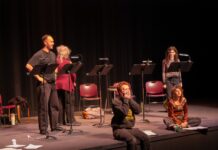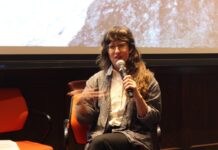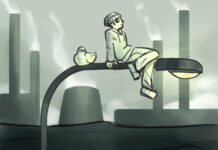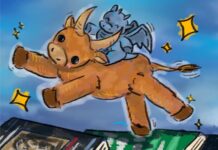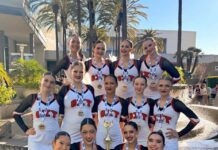This year’s first Open Mic Night, hosted by the Black Student Alliance (BSA), took place on Thursday, Oct. 5. at 7 p.m. Students filled the Green Bean, either to perform or support their peers as they shared their poetry and musical talents. Two rows of seats curved around the center of the Green Bean, and a lone chair and microphone sat facing the front and center of the audience. The performances were a mix of passionate spoken word poetry, singing and guitar playing. Pieces highlighted racial issues as well as expressions of gender identity and sexual assault, their words satiated with emotion.
Performers became emotionally naked and shared the rawest, most vulnerable aspects of themselves. Their passion engulfed the audience, and in turn, the audience received them with an appreciation and support for their art — cheers and encouraging remarks followed each performance.
BSA and audience member Rodina Mohamed (sophomore) appreciated the performers’ vulnerability.
“You get to see a different side of someone that they usually hide in public settings. Like, a story about them, too. I feel closer to people even though I don’t really talk to a few of the people that performed. I just feel like I know them better because I’ve seen this side of them now,” Mohamed said.
Anastasia Cusack-Mercedez (sophomore), a BSA member, performer and organizer of the event, described Open Mic Night as a very supportive space — a place in which the audience was eager to hear the performers’ stories.
“I think they’re really supportive because everyone just wants to see what everyone can offer. Everyone likes to enjoy the art, so it’s not a strict space,” Cusack-Mercedez said.
Darla Howell (sophomore), the vice president of BSA as well as the host for and a performer in Open Mic Night, spoke to how the event offered respite from the classroom setting.
“A lot of people in that space [the classroom] don’t understand where we’re coming from, and the situations and experiences that we’ve had. So just being able to write about it and share it with a group of people that look like you and understand what you went through is super important,” Howell said.
The poem Howell performed highlighted the need for marginalized voices to have a space in which these topics can be discussed freely. She wrote about an experience she had in Professor Courtney Baker’s African-American Women Writers course. Howell shared that her professor gave her a C on an essay because she wrote about the criminalization of black men in a class about black women. Her poem reflected on how, in writing this essay, she overlooked the experiences of black women.
“A lot of the time the stories of black women go unheard of or unnoticed. It’s almost like the crime of being a woman. Not only are you black, but you’re a woman, too. You’re like secondhand. The intersectionality of race and gender is really apparent. I just felt that even I, as a black woman, because I’ve been silenced, I continue silencing too,” Howell said.
According to Howell, poetry is a medium through which opinions on these heavy topics can be expressed in a constructive and uplifting manner. As BSA member and event attendee Kayla Williams (sophomore) said, these words and the passion behind them transformed the Green Bean into a place of protest and progress.
“I thought it was dope to take a space that’s normally common and make it a space for protest or to be revolutionary,” Williams said.
![]()




